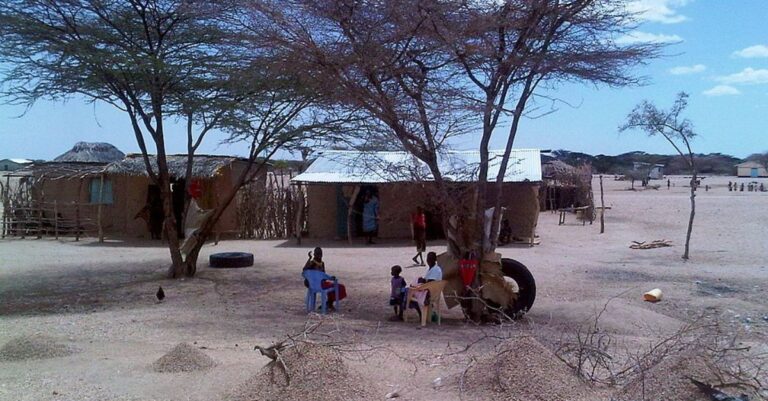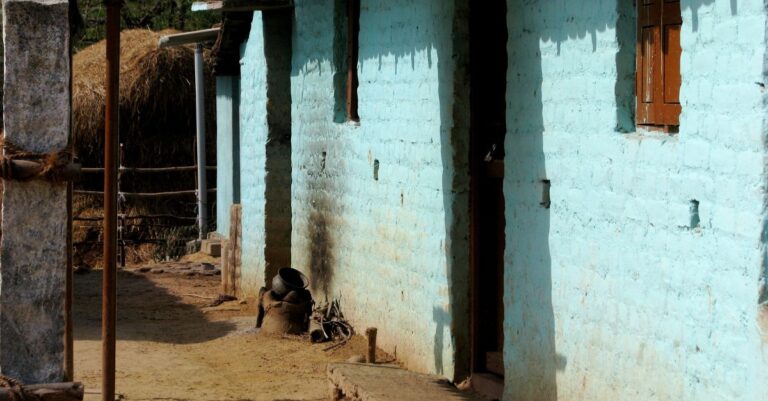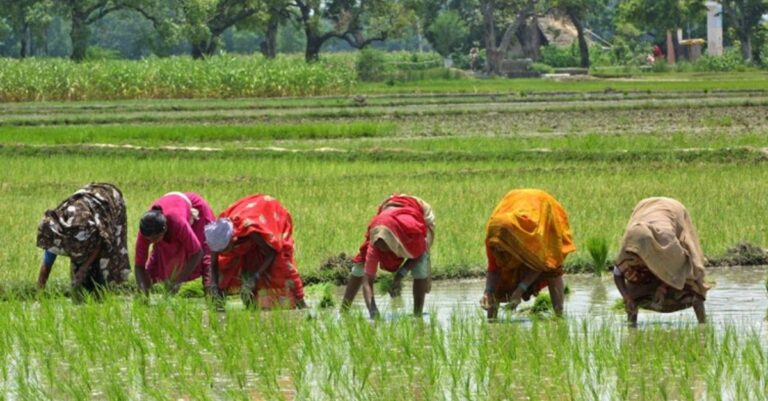By Farooque Chowdhury
Misrepresentation creates confusion, and confusion misleads many. Misrepresentation is unfair also as it carries seeds of injustice.
A recent two-parts-article in a Dhaka English daily (“Karl Marx in Bangladesh”, The Daily Star, Dhaka, May 5 and 6, 2018, https://www.thedailystar.net/opinion/perspective/karl-marx-bangladesh-1571515 and https://www.thedailystar.net/opinion/perspective/karl-marx-bangladesh-part-2-1571884) is an example of this practice.
The article narrates, as it claims, “the intellectual or conceptual footprints of Marx in Bangladesh — how his ideas travelled within the elite academia, the intellectual discourses and middle class political activism as well as the ordinary people and peasantries in remote villages in colonial Bengal and independent Bangladesh.”
However, the article warns its readers that the account it presents “is not based on any systematic research but relies on what” the writer of the article has “read, seen, and experienced over the decades.
Clearly this is not an exhaustive survey of the topic.” A fair confession; although the confession doesn’t commensurate the claim made earlier: A narration of “the intellectual or conceptual footprints of Marx in Bangladesh — […] within the elite academia, the intellectual discourses and middle class political activism as well as the ordinary people and peasantries in remote villages in colonial Bengal and independent Bangladesh.” And, “over the decades” is not a short time in an intellectual’s life.
The two statements are confusing, and contradictory. The later statement and the heading are contradictory also. It relies on its extent of reading, seeing, and experience “over the decades” while it covers a vast area – “the intellectual or conceptual footprints of Marx in Bangladesh”, “political activism”, and “the ordinary people and peasantries”, etc.
And, “over the decades”, the writer misses much and many while it cites Nazrul. Among the missed are, to name a few, Sukanta Bhattacharya, Manik Bandopadhyay, Subhash Mukhopadhyay, Bishnu Dey, Samar Sen, Premendra Mitra, Bijan Bhattacharja, Somen Chanda. They are from pre-August-1947 period [“period” in a loose sense]. Marx was present in their works – poetry, novels, etc.
In the post-August-1947 period, the missed names are, to name a few, Ajit Guha, Satyen Sen, Ranesh Das Gupta, Shahidullah Kaiser, Hasan Azizul Huq, Shawkat Ali, Akhteruzzaman Elias, Zahir Raihan. Marx is also present in these cases.
It’s strange that “over the decades” the writer has not read, seen and experienced the above mentioned poets/novelists/essayists/authors while he narrates “the intellectual or conceptual footprints of Marx in Bangladesh”, etc., which leads him to a too narrow output with a too wide attempt based on a less than a primary learner’s information-base! At the very beginning of learning any young Bangladesh learner with Marx comes across poems/poetries/novels/short stories by the above mentioned “persons” missed by the article, which is based on “decades” of reading/seeing/experience.
One may claim that it’s not a folly to miss the “persons” mentioned above. But, it’s a misrepresentation of facts while one tries to map a wide area – Karl Marx in Bangladesh – based on reading, etc. “over the decades”.
At the same time, it’s an injustice to the ignored/missed “persons” – the literary personalities contributing to the spread of people-oriented knowledge, and tools for struggle, especially the struggle in the sphere of ideology. Actually, it’s a show of superficial-“Marxism” “learned and observed” “over the decades” in so-called “study circle” isolated from history, realty and practice.
Once, such superficial-“Marxism” was rife within a narrow circle, which has now diminished. With this superficial-“Marxism”, how can one pass comments and observations on the issue? How was the learned study circle under the shadow of 2,000 books and journals of a Communist Party going on, which ignored literature created in the land the circle was being conducted? It’s a show of learning and practice by a miniscule-miniscule section of the society, actually a number of individuals.
During the period mentioned in the article – 1980s – different parts of people in different parts of Bangladesh including parts of students in the University of Dhaka and in other universities, and the working classes were trying to organize initiatives in different forms. Many of the literature including periodicals/bulletins produced during those initiatives were based on Marx. These were not small in total number; and not only confined within poems and short stories. A huge political literature got created during the period.
Is it possible to deny Daud Hossain’s work – translation of Lenin’s works on market, narodism and capitalism in Russia?
With this type of learning and practice over the decades the article jumps on another area – communication between peasant leaders and peasants in a conference. It compares the way Badruddin Umar and Saif-ud-Dahar were communicating with their peasant audience and the way Maulana Bhashani and Nazrul communicated. It looks at the way Umar and Dahar communicate although it fails to mention works by Umar and Dahar.
Umar, one of the leading and veteran Marxist theoreticians, is creator of a vast political literature with his standpoint and analysis, with which one can differ. But, there’s no way to ignore the political literature he has created. Umar’s contribution in the area of Marx-learning in Bangladesh is undeniable. It was Umar’s work, which was the first to theoretically challenge the basis of Pakistan state.
Umar has penned about 100 books on Bangladesh politics, economy, society, culture and history, and on philosophy; and all his works are based on Marx. His creations include books on class struggle and general crisis of the bourgeoisie in Bangladesh. He has pioneered works on people’s history in Bangladesh. It may happen that someone can evaluate Umar as a not-good communicator; but, his writings with Marxism are to be taken into account.
And, Dahar, fondly addressed Daaktaar daa by his comrades, and once a veteran labor leader in the Khulna-Daulatpur region, created a number of essays on some fundamental aspects of wage, etc.
The article erroneously cites the Comilla [now, Cumilla] Model” of cooperative with the period of Naxalbari spark. The “model” was initiated long before the spark of Naxalbari sparked.
The article cites Maulana Bhashani listening to Professor Akhlaqur Rahman’s lessons on Marxist economy. Haider Akbar Khan Rono, one of the closest associates of Maulana Bhashani, claims there’s no scope of Maulana listening to Professor Rahman. Rono, now seriously sick, has already created a number of books on progressive literature, debacle in Soviet Union and the October Revolution.
The article uses two criteria: Marx mentioned/cited/named, and Marx not mentioned/cited/named. Both were used to identify Marx in writings. It can be a confusing yardstick or usable yardstick. It should be consistent if it’s used in a responsible way. But, there is no consistency in the article.
The area covered by the article is not an area to be covered superficially. There are pre- and post-1947 periods; and there are pre- and post-1971 periods. Or, someone can have colonial, neo-colonial, etc. approach. During all the periods, to put the issue in a very, very, brief way, there was presence of Marx in literature created in academies and by political organizations/parties/institutions. Academicians and political leaders and activists created these in Bangladesh.
There was presence of Marx in poems, poetries, rhymes, songs, dramas, short stories, novels, novellas in the country. Marx was present in legal and illegal leaflets, bulletins, journals in Bangladesh.
Marx was present in translated works also. The translations were from English and Urdu. A number of famous Marxist literatures, on history, philosophy and economics, from Britain, Soviet Russia and the United States were translated into Baanglaa. These included works by Marx, Engels, Lenin, Stalin, Mao, Che, Emile Burns, George Thomson, Paul Sweezy, Leo Huberman, John Bellamy Foster, Fred Magdoff. Famous works by Gorky, Mulk Raj Anand, Krishan Chander and Rahul Sankrityayan were translated into Baanglaa also.
A number of songs from other lands including the United States were also translated into Baanglaa, the theme/message of which is based on Marxism.
The communist party publications including its newspaper/journal did not discard Marx. Mao’s On Practice, On Contradiction, On New Democracy, Report on an Investigation of the Peasant Movement in Hunan, Analysis of the Classes in Chinese Society, Talks at the Yenan Forum on Literature and Art were translated. Translation works by Nurul Huda Mirza and Professor Rafiqul Islam [not the nationally known professor at the Baanglaa Department, Dhaka University] were produced.
There are books by Debiprasad Chattopadhyaya, Suprakash Roy and Sukomal Sen, all are veteran Marxist scholars, and Sen was a veteran labor leader in Paschim Banga, India. It’s a long list.
Banglaa books on Marxist approach to literary criticism and aesthetics also came out. A few of these books are fat, and in more than one volume. Ashish Lahiri, now editor of Bangla Monthly Review from Kolkata, a Baanglaa sister publication of Monthly Review, has created books on science. Shall anyone going through those books claim that Marx is absent in those?
These were created from Dhaka and Kolkata, and a few came out from small towns far away from Dhaka and Kolkata.
Legal and illegal journals and weeklies came out in pre- and post-independent Bangladesh. All these, by pro-Peking and pro-Moscow political parties/mass organizations/unions, were based on Marx. One such legally published Baanglaa weekly was Ganashaktee [People Power; editor, Badruddin Umar]. Holiday, [editor: Enayetullah Khan, now deceased] once famous English weekly from Dhaka, also had impressions of Marx. The volume of illegal periodicals/monthly organ of communist factions operating illegally is not small; and those were not devoid of Marx.
One poet from Dhaka composed a long rhyme explaining dialectical materialism with a very small price tag. Is it possible to forget creations by poets/essayists Samudra Gupta, Indu Saha, Matin Bairagee, Mahsin Shastrapaanee? Is it possible to ignore works by Krantee, one of the leading radical cultural organizations rendering messages through songs and dramas in industrial and rural areas, under the leadership of Kamal Lohani and Haider Anwar Khan Juno? There are productions by Lekhak Shibir and Unmesh, two radical cultural organizations. Shall anyone, after reviewing those, find Marx was absent in those?
Books and pamphlets by left/communist leaders including Professor Muzaffar Ahmed, a Moscow-leaning political leader in the late-1960s, Abdul Haq, Abdul Matin, Mohammad Farhad, sometimes written with a pseudonym, were created. Capital, and its shorter, popular and introductory versions have been translated into Baanglaa. Javed Hussen has already translated into Baanglaa a number of works by Marx including Economic and Philosophic Manuscript: 1844. His other translation works include Marx’s Concept of Man by Erich Fromm.
Works on language movement and the mass upsurge in 1969 have also been created by academics, researchers and progressive political leaders and activists. A number of those are based on people’s point of view. Communist leaders have created works on people’s movement/progressive initiatives. These include works by Moni Singh, Barin Dutta, Khoka Roy, Anil Mukherjee, Gyan Chakrabarty, Hena Das.
Singh’s works cover the Tanko rebellion, a militant peasant struggle by the Hajong and Garo people, which he organized and led; Chakrabarty’s works cover early days of communist activities in a part of the country including organizing food supply system during a famine, with which he was closely involved; Mukherjee’s works cover earliest initiative in organizing unions of textile workers in a part of Bangladesh.
Mrs. Hena Das describes her clandestine efforts in organizing tea plantation workers. She had to secretly enter tea plantations by crossing barbed wire fence. She also had to blacken her face with color so she could not be identified during her stay with plantation workers, who were of dark complexion. And, Dutta had to hawk daily commodities in a boat everyday in a part of Bangladesh to avoid police. Ajay Bhattacharja documents rebellion of naankaars, slave-like servants of feudal lords in a part of Bangladesh.
Works on communists’ role, and armed struggle and liberated zones organized by them in different parts of Bangladesh during the War for Liberation are also available. These carry imprints of Marx. Everyone has the liberty to differ with interpretations in those works.
Two books by Dr. Neehar Kumar Sarkar are almost essential for any learner joining primary level progressive/Marxist study circles in Bangladesh. These are: Chhotoder Raajneetee [Politics for Learners] and Chhotoder Arthaneetee [Economics for Learners]. The book on politics was proscribed during the Pakistan-days. Activists copied the book in notebook; and those got distributed among participants in study circles.
There are similar other elementary books. Any primary Marx-learner in Bangladesh is acquainted with the two books, which don’t require decades of reading and experience.
Biography of Marx and others have been translated and written in Bangladesh. Collections of poems by/on Marx/Lenin/Mao have also come up in Bangladesh.
Declarations, programs and charters of demands of unions, and peasant, student and cultural organizations, and of a number of political parties in pre- and post-independent Bangladesh carry many embossments of Marx.
Socialism appeared as a popular demand in the pre-independent Bangladesh – a lively mark of Marx. The Bangladesh people’s glorious War for Liberation is a burning witness of this reality. The leading faction of the political force in the War for Liberation had to adopt socialism as a state principle, which was a reflection of people’s aspiration; and that was enshrined in the Constitution of the Republic.
There’s no doubt that these adoption and enshrinement were not free from the questions of class equation, class compromises, etc. as happens in case of constitutions, a political document. But, it reflected the political environment in the society of that time.
All the references made above are basically based on Marx in broader sense. Flaws and limitations, and differences of opinions and interpretations in/on these works are a normal way of work in the area. But the Marx-orientation of these works is undeniable.
Marx influences many cultural activities/creations in Bangladesh. It ranges from songs, dances and dramas to drawings, pictures, sculptures and motifs. Posters, leaflets, banners and graffiti, and slogans in processions in Bangladesh fail to escape Marx. These have repeatedly appeared boldly during times of intensified political struggles in the country.
A number of national political leaders in Bangladesh had to rely on Marx while they delivered their messages to their audience – the commoners, an essential part to legitimize their politics. Marx was present in deliberations of left-leaning union- and peasant-leaders over the decades. One such union leader was Abul Bashar, a legendary figure in an industrial zone. In the radical student politics in Bangladesh, Marx was/is present boldly.
This article is not an entire picture of the issue in question, but, an example/a fragment of it. It misses many names, references, academic works, etc.; and doesn’t cite from the works mentioned as it has tried to be brief. It’s just a quick-effort to show that Marx is not present in the narrow way, actually a distorted narration, the referred article tried to narrate.
There’s no reason to claim that Marx was and is present in a wider and wider and deeper and deeper way in Bangladesh. The presence of superficial deliberations on the issue is the burning example.
However, there’s no ground to present Marx’s presence in a novice way as (1) the issue is neither superficial nor does it come out from an NGO-mill; (2) the issue involves labor of many persons dedicated to the service of people, whose contributions and sacrifices can’t be ignored; and (3) it reflects a society’s state of “mind” – its intellectual capacity.
The problems related to the referred article are: (1) how is Marx defined? and (2) what’s the area/period to be searched/covered? With these questions there’s no scope to be superficial, superfluous, shallow and narrow as the question is connected to a people’s struggle and is emblazoned by sacrifices by daughters and sons of the people in the land.
The article originally appeared in New Age, Dhaka in its June 6, 2018 issue.
Farooque Chowdhury writes from Dhaka.




